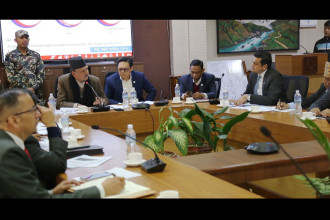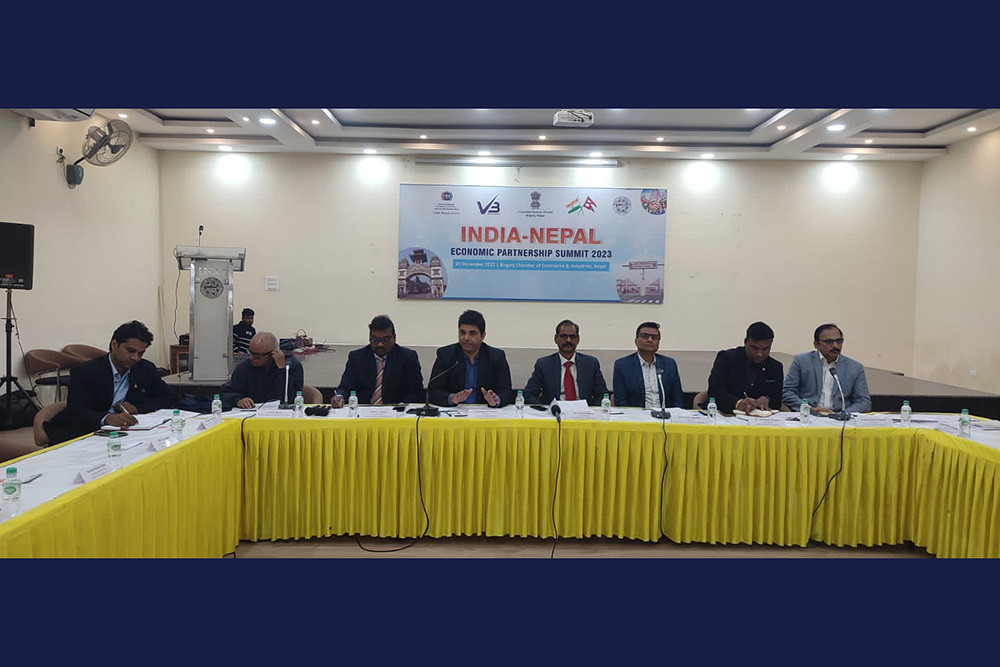
In a move by the government to protect workers nationwide, the contribution-based Social Security Scheme expected to benefit nearly 3.5 million formal private sector workers was launched on November 27 by Prime Minister KP Sharma Oli. The scheme also includes a comprehensive welfare package. Under the scheme, workers will be entitled to old age pension, medical treatment, health protection, maternity coverage, accidents, and disability compensation.
“After the implementation of the scheme, workers will not have to worry about their old age as the contribution from their productive years will benefit them in the later part of their life,” said PM Oli. During the launch, he hailed the scheme as a mark of the beginning of a new era. The prime minister also underlined that the social security scheme will also help achieve the government’s vision of ‘Prosperous Nepal, Happy Nepali’ by creating a better environment for workers. “The Social Security Fund is a win-win scheme for both labourers who seek security and employers who seek liberal labour policies.”
According to the scheme, every month, tens of thousands of private sector workers and their employers will be contributing to a common fund—Social Security Fund— which will help needy workers get financial support. An amount equivalent to 31% of workers’ basic monthly salary—11% deducted from worker’s monthly salary and 20% employer’s contribution— will be going to the social security fund that currently has Rs19.33 billion. Once these contributions are made, employees will be entitled to compensation if they lose a job or cannot attend the workplace because of pregnancy, illness or accident. Of the 31%, one percent will go for medical treatment, health protection and maternity scheme; 1.40% for accidents and disability plan; 0.27% for dependent family plan; and 28.33% for pension or old-age security scheme.
As per the Social Security Scheme’s operational directives, retirement pension will be provided to workers aged over 60 who have contributed to the fund for 15 years.
Private sector and labour rights organisations have applauded the implementation of the social security scheme as a much needed step towards dignifying the labour sector. This scheme is believed to enhance cordial relationship between workers and employers.
Labour, Employment and Social Security Minister Gokarna Bista said, “Workers can lead a dignified and secure life under this scheme,” and added that the target is to also encourage youths to find employment inside the country and thereby minimizing the influx of migrant workers for jobs.
Bhawani Rana, President of the Federation of Nepalese Chambers of Commerce and Industry said, “Workers’ future will be secure and this will promote dignified labour practices in the country. This move will prove to be a landmark in protecting the labour’s rights and safety. We have held talks regarding the scheme with the government over a long period of time and we believe it will ensure sound ties between workers and employers that could go a long way in assisting country’s development process”. “This is a day of structural transformation in Nepal’s industrial sector and it could help increase investment in the country’s industries,” she added. However, she stressed on the need to maintain privacy and secrecy of the data that the government collects of the formal sector workers.
However, Chandra Prasad Dhakal, President of Employers’ Council, urged the government to utilise the social security fund effectively by investing in the country’s development.
Also speaking during the inauguration, Hari Bhakta Sharma, president of Confederation of Nepalese Industries, has suggested the government to invest the money collected in the Social Security Fund in physical infrastructure and productive sector. “There could be some challenges for the government when the funds are being used so it needs to be properly managed.”







